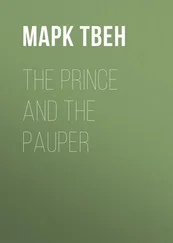Марк Твен - Life on the Mississippi
Здесь есть возможность читать онлайн «Марк Твен - Life on the Mississippi» весь текст электронной книги совершенно бесплатно (целиком полную версию без сокращений). В некоторых случаях можно слушать аудио, скачать через торрент в формате fb2 и присутствует краткое содержание. Год выпуска: 1883, Жанр: Классическая проза, на английском языке. Описание произведения, (предисловие) а так же отзывы посетителей доступны на портале библиотеки ЛибКат.
- Название:Life on the Mississippi
- Автор:
- Жанр:
- Год:1883
- ISBN:нет данных
- Рейтинг книги:3 / 5. Голосов: 1
-
Избранное:Добавить в избранное
- Отзывы:
-
Ваша оценка:
- 60
- 1
- 2
- 3
- 4
- 5
Life on the Mississippi: краткое содержание, описание и аннотация
Предлагаем к чтению аннотацию, описание, краткое содержание или предисловие (зависит от того, что написал сам автор книги «Life on the Mississippi»). Если вы не нашли необходимую информацию о книге — напишите в комментариях, мы постараемся отыскать её.
Life on the Mississippi — читать онлайн бесплатно полную книгу (весь текст) целиком
Ниже представлен текст книги, разбитый по страницам. Система сохранения места последней прочитанной страницы, позволяет с удобством читать онлайн бесплатно книгу «Life on the Mississippi», без необходимости каждый раз заново искать на чём Вы остановились. Поставьте закладку, и сможете в любой момент перейти на страницу, на которой закончили чтение.
Интервал:
Закладка:
'Have you ever traveled with a panorama?'
'I have formerly served in that capacity.'
My suspicion was confirmed.
'Do you still travel with it?'
'No, she is laid up till the fall season opens. I am helping now to work up the materials for a Tourist's Guide which the St. Louis and St.
Paul Packet Company are going to issue this summer for the benefit of travelers who go by that line.'
'When you were talking of Maiden's Rock, you spoke of the long-departed
Winona, darling of Indian song and story. Is she the maiden of the rock? — and are the two connected by legend?'
'Yes, and a very tragic and painful one. Perhaps the most celebrated, as well as the most pathetic, of all the legends of the Mississippi.'
We asked him to tell it. He dropped out of his conversational vein and back into his lecture-gait without an effort, and rolled on as follows'A little distance above Lake City is a famous point known as Maiden's
Rock, which is not only a picturesque spot, but is full of romantic interest from the event which gave it its name, Not many years ago this locality was a favorite resort for the Sioux Indians on account of the fine fishing and hunting to be had there, and large numbers of them were always to be found in this locality. Among the families which used to resort here, was one belonging to the tribe of Wabasha. We-no-na (first-born) was the name of a maiden who had plighted her troth to a lover belonging to the same band. But her stern parents had promised her hand to another, a famous warrior, and insisted on her wedding him. The day was fixed by her parents, to her great grief. She appeared to accede to the proposal and accompany them to the rock, for the purpose of gathering flowers for the feast. On reaching the rock, We-no-na ran to its summit and standing on its edge upbraided her parents who were below, for their cruelty, and then singing a death-dirge, threw herself from the precipice and dashed them in pieces on the rock below.'
'Dashed who in pieces-her parents?'
'Yes.'
'Well, it certainly was a tragic business, as you say. And moreover, there is a startling kind of dramatic surprise about it which I was not looking for. It is a distinct improvement upon the threadbare form of
Indian legend. There are fifty Lover's Leaps along the Mississippi from whose summit disappointed Indian girls have jumped, but this is the only jump in the lot hat turned out in the right and satisfactory way. What became of Winona?'
'She was a good deal jarred up and jolted: but she got herself together and disappeared before the coroner reached the fatal spot; and 'tis said she sought and married her true love, and wandered with him to some distant clime, where she lived happy ever after, her gentle spirit mellowed and chastened by the romantic incident which had so early deprived her of the sweet guidance of a mother's love and a father's protecting arm, and thrown her, all unfriended, upon the cold charity of a censorious world.'
I was glad to hear the lecturer's description of the scenery, for it assisted my appreciation of what I saw of it, and enabled me to imagine such of it as we lost by the intrusion of night.
As the lecturer remarked, this whole region is blanketed with Indian tales and traditions. But I reminded him that people usually merely mention this fact-doing it in a way to make a body's mouth water-and judiciously stopped there. Why? Because the impression left, was that these tales were full of incident and imagination-a pleasant impression which would be promptly dissipated if the tales were told. I showed him a lot of this sort of literature which I had been collecting, and he confessed that it was poor stuff, exceedingly sorry rubbish; and I ventured to add that the legends which he had himself told us were of this character, with the single exception of the admirable story of
Winona. He granted these facts, but said that if I would hunt up Mr.
Schoolcraft's book, published near fifty years ago, and now doubtless out of print, I would find some Indian inventions in it that were very far from being barren of incident and imagination; that the tales in
Hiawatha were of this sort, and they came from Schoolcraft's book; and that there were others in the same book which Mr. Longfellow could have turned into verse with good effect. For instance, there was the legend of 'The Undying Head.' He could not tell it, for many of the details had grown dim in his memory; but he would recommend me to find it and enlarge my respect for the Indian imagination. He said that this tale, and most of the others in the book, were current among the Indians along this part of the Mississippi when he first came here; and that the contributors to Schoolcraft's book had got them directly from Indian lips, and had written them down with strict exactness, and without embellishments of their own.
I have found the book. The lecturer was right. There are several legends in it which confirm what he said. I will offer two of them-'The Undying
Head,' and 'Peboan and Seegwun, an Allegory of the Seasons.' The latter is used in Hiawatha; but it is worth reading in the original form, if only that one may see how effective a genuine poem can be without the helps and graces of poetic measure and rhythmPEBOAN AND SEEGWUN.
An old man was sitting alone in his lodge, by the side of a frozen stream. It was the close of winter, and his fire was almost out, He appeared very old and very desolate. His locks were white with age, and he trembled in every joint. Day after day passed in solitude, and he heard nothing but the sound of the tempest, sweeping before it the new-fallen snow.
One day, as his fire was just dying, a handsome young man approached and entered his dwelling. His cheeks were red with the blood of youth, his eyes sparkled with animation, and a smile played upon his lips. He walked with a light and quick step. His forehead was bound with a wreath of sweet grass, in place of a warrior's frontlet, and he carried a bunch of flowers in his hand.
'Ah, my son,' said the old man, 'I am happy to see you. Come in. Come and tell me of your adventures, and what strange lands you have been to see. Let us pass the night together. I will tell you of my prowess and exploits, and what I can perform. You shall do the same, and we will amuse ourselves.'
He then drew from his sack a curiously wrought antique pipe, and having filled it with tobacco, rendered mild by a mixture of certain leaves, handed it to his guest. When this ceremony was concluded they began to speak.
'I blow my breath,' said the old man, 'and the stream stands still. The water becomes stiff and hard as clear stone.'
'I breathe,' said the young man, 'and flowers spring up over the plain.'
'I shake my locks,' retorted the old man, 'and snow covers the land. The leaves fall from the trees at my command, and my breath blows them away.
The birds get up from the water, and fly to a distant land. The animals hide themselves from my breath, and the very ground becomes as hard as flint.'
'I shake my ringlets,' rejoined the young man, 'and warm showers of soft rain fall upon the earth. The plants lift up their heads out of the earth, like the eyes of children glistening with delight. My voice recalls the birds. The warmth of my breath unlocks the streams. Music fills the groves wherever I walk, and all nature rejoices.'
At length the sun began to rise. A gentle warmth came over the place.
The tongue of the old man became silent. The robin and bluebird began to sing on the top of the lodge. The stream began to murmur by the door, and the fragrance of growing herbs and flowers came softly on the vernal breeze.
Daylight fully revealed to the young man the character of his entertainer. When he looked upon him, he had the icy visage of
Читать дальшеИнтервал:
Закладка:
Похожие книги на «Life on the Mississippi»
Представляем Вашему вниманию похожие книги на «Life on the Mississippi» списком для выбора. Мы отобрали схожую по названию и смыслу литературу в надежде предоставить читателям больше вариантов отыскать новые, интересные, ещё непрочитанные произведения.
Обсуждение, отзывы о книге «Life on the Mississippi» и просто собственные мнения читателей. Оставьте ваши комментарии, напишите, что Вы думаете о произведении, его смысле или главных героях. Укажите что конкретно понравилось, а что нет, и почему Вы так считаете.









